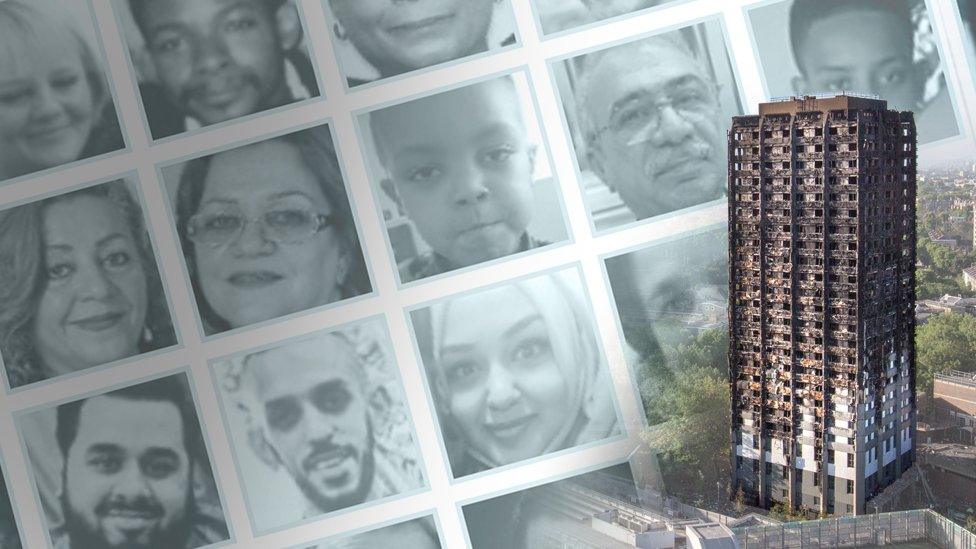Grenfell Tower fire: 'Systemic failures' in fire brigade's response
- Published
The second anniversary of the tragedy was marked last June
The London Fire Brigade (LFB) has been condemned for "serious shortcomings" and systemic failures in its response to the Grenfell Tower fire, in a report after the first phase of an inquiry.
Fewer people would have died in the 2017 fire if the LFB had taken certain actions earlier, the report by inquiry chairman Sir Martin Moore-Bick said.
The head of the Fire Brigades Union said the inquiry was "back to front".
The BBC has seen sections of the report ahead of Wednesday's publication.
The document follows the first phase of the inquiry, which looked at what happened on the night that 72 people died in the tower block fire on 14 June 2017.
The second phase will focus on wider circumstances of the fire, including the design of the building.
General secretary of the Fire Brigades Union, Matt Wrack, said: "The truth is that the fire spread the way it did because it was wrapped in flammable cladding. The firefighters turned up after that had happened, after the building had already been turned, in reality, into a death trap.
"Firefighters' actions on the night, which were remarkable in the circumstances, are now being scrutinised. Nobody is trying to avoid scrutiny, but we think that the ordering of the inquiry is completely back to front."
Nabil Choucair, who lost six members of his family in the fire, says people should have been evacuated earlier
Speaking to BBC News, Nabil Choucair, who lost six relatives in the fire, said he believed "lots of families could have been rescued, without a doubt".
"It's very hard to go on," he added. "I personally believe they were inadequate in dealing with the fire."
The council, the tower's tenant management organisation, the police and the fire service were all questioned during the inquiry's first phase.
The inquiry has criticised the Daily Telegraph, external, which first published leaked details of the report, and other media which followed suit. A spokeswoman said publication had deprived "those most affected by the fire - the bereaved, survivors and residents - of the opportunity to read the report at their own pace".
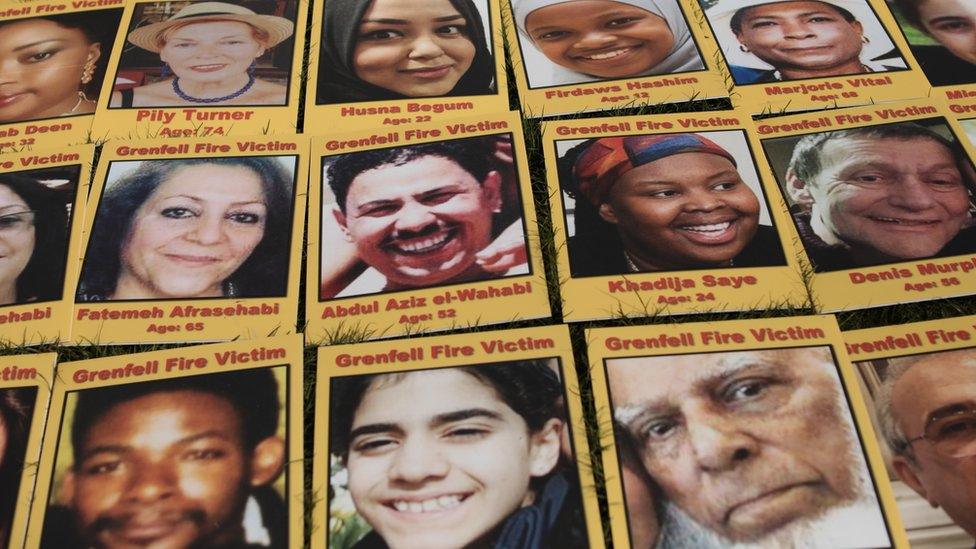
The families of the 72 victims contributed to the report
Sir Martin's report praised the courage of firefighters on the night.
But it found many "institutional" failures that meant the LFB's planning and preparation for the incident was "gravely inadequate".
For example, Sir Martin said control room staff who fielded 999 calls "undoubtedly saved lives" but "a close examination" of operations revealed "shortcomings in practice, policy and training".
He said staff that night were in an "invidious" position when they were outnumbered by 999 calls.
"Supervisors were under the most enormous pressure, but the LFB had not provided its senior control room staff with appropriate training on how to manage a large-scale incident with a large number of FSG [Fire Survival Guidance] calls," he said.
"Mistakes made in responding to the Lakanal House fire were repeated," he added - referring to a fire in Camberwell, south London, in 2009, which killed three women and three children.

Analysis
By Lucy Manning, special correspondent
This report could not be more critical of the London Fire Brigade.
The Grenfell families wanted this level of criticism, especially those whose relatives died when they were told for nearly two hours to stay put in the building as it was covered in flames.
But there is also some frustration that this first part of the inquiry wasn't about those who made the cladding and oversaw the refurbishment of Grenfell.
That will only happen in the second phase of the inquiry next year and then they've got even longer to wait for the police investigation to finish.
So they are seeing some blame apportioned and they hope they will eventually see justice but the Grenfell survivors will always suffer the loss and grief and ask the question how did 72 people die in what was supposed to be the safety of their homes?

Sir Martin also criticised the LFB for following a "stay put" strategy, where firefighters and 999 operators told residents to stay in their flats for nearly two hours after the blaze broke out.
The strategy was rescinded at 02:47 BST, the report said. Sir Martin wrote: "That decision could and should have been made between 01:30 and 01:50 and would be likely to have resulted in fewer fatalities."
Firefighters who attended the fire did not have training on how best to combat a cladding fire, the report added.
Four members of the first crews to have fought the blaze had 52 years of combined experience. However, they had not received any training on the risks posed by exterior cladding or the techniques to be deployed in fighting fires involving cladding, the report found.
Among other issues highlighted in the report were:
A lack of training in how to "recognise the need for an evacuation or how to organise one"
Incident commanders "of relatively junior rank" being unable to change strategy
Control room officers lacking training on when to advise callers to evacuate
An assumption that crews would reach callers, resulting in "assurances which were not well founded"
Communication between the control room and those on the ground being "improvised, uncertain and prone to error"
A lack of an organised way to share information within the control room, meaning officers had "no overall picture of the speed or pattern of fire spread"
Sir Martin said the "principal" reason the fire spread so quickly "up, down and around the building was the presence of the aluminium composite material (ACM) rainscreen panels with polyethylene cores, which acted as a source of fuel".
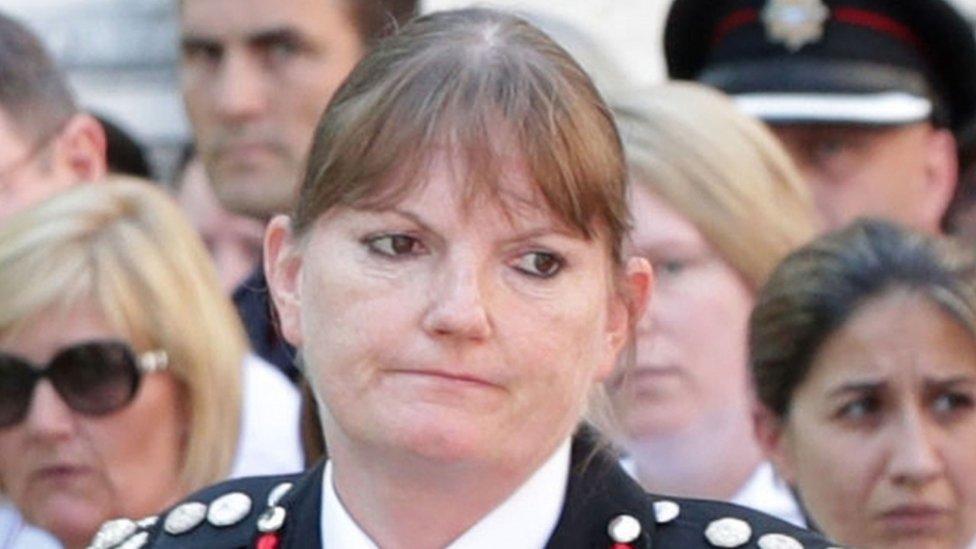
Dany Cotton said she would not have changed anything about the way her brigade responded to the blaze
The report also said evidence given by the LFB's commissioner, Dany Cotton, suggested lessons from the fire might be missed.
Sir Martin wrote: "Quite apart from its remarkable insensitivity to the families of the deceased and to those who escaped from their burning homes with their lives, the Commissioner's evidence that she would not change anything about the response of the LFB on the night, even with the benefit of hindsight, only serves to demonstrate that the LFB is an institution at risk of not learning the lessons of the Grenfell Tower fire."
A spokesperson for the LFB said it would be "inappropriate" to comment on the report's findings before they were officially released on Wednesday.
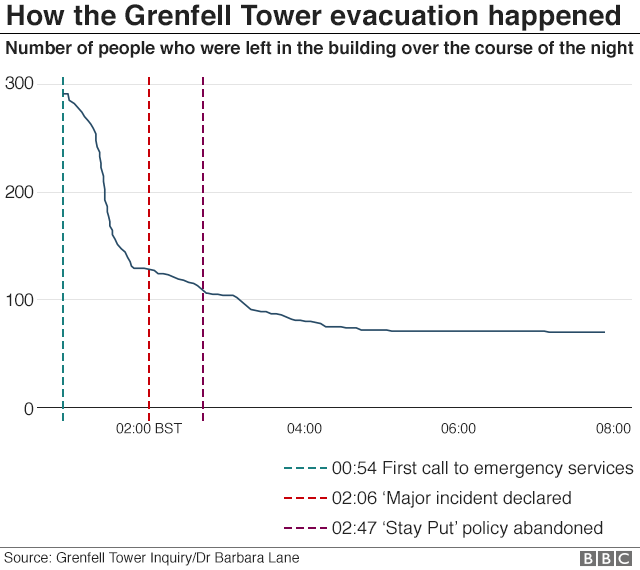
In remarks to families and survivors on Monday, Sir Martin said the report was long and detailed.
He stressed that readers of the report "should understand as clearly as possible the terrifying conditions faced by those who were in the building, at the time".
The cause of the fire was found by the report to be "an electrical fault in the large fridge freezer in the kitchen" in a fourth-floor flat.
"It occurred without any fault on the part of the tenant... and I am pleased to clear him of any blame, given that some people have unfairly accused him of having some responsibility for what happened," Sir Martin said.
Additional reporting by Vinnie O'Dowd.
- Published25 October 2019
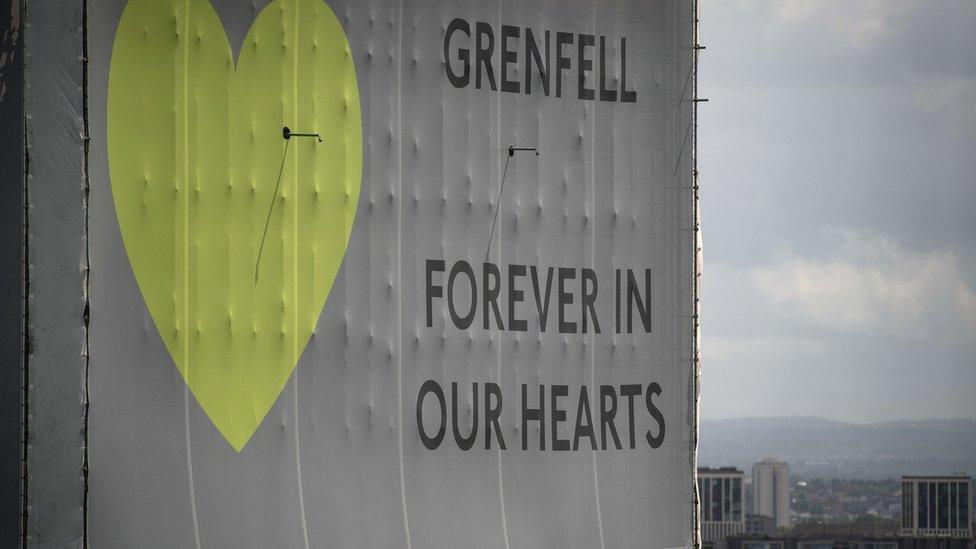
- Published29 October 2019
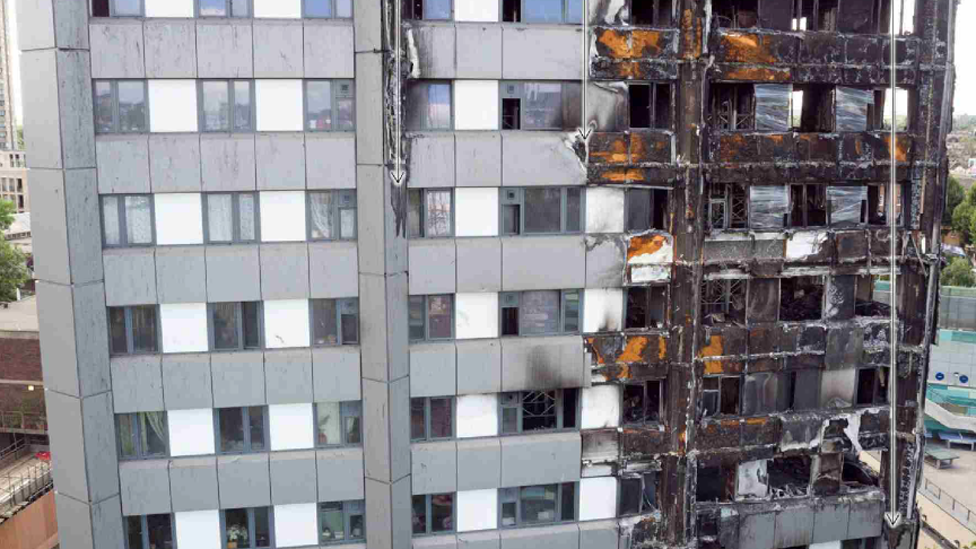
- Published30 May 2018
